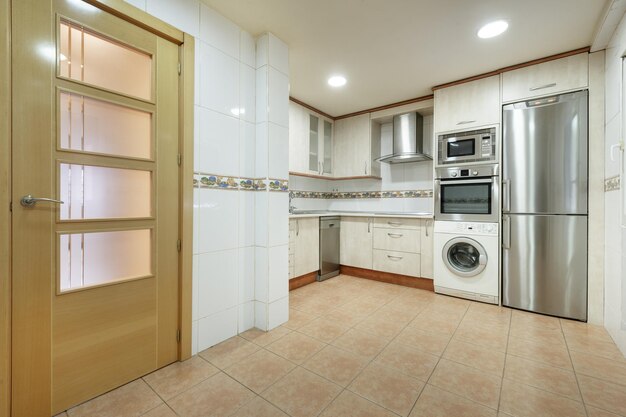Is Unplugging Your Refrigerator the Smart Move When Away for Four Months?
Imagine gearing up for an extended vacation or an important work assignment abroad. Your suitcase is packed, travel itinerary set, and now you're staring at your trusty refrigerator, a perplexing question looms: Should you unplug it if you're leaving for four months? This question, surprisingly common among travelers and those taking extended leaves, requires careful consideration of various factors. Let's delve into the details to help you make an informed decision.
Understanding Your Refrigerator’s Role
Before making any decision, it's essential to understand the role your refrigerator plays in your household. More than just a cooling device, it is a silent guardian of your food's freshness and safety. But does its role change when you're not around to fill it with groceries?
Energy Consumption Concerns
Refrigerators are known for their substantial energy use among household appliances. While unplugging could substantially save energy and reduce your utility bill, it’s not just about turning off a switch. Assessing the energy impact involves reviewing how modern refrigerators, often energy-efficient, compare to older models which consume significantly more electricity. Understanding your refrigerator’s energy usage can guide your decision, especially when considering prolonged inactivity.
Potential for Malfunctions
Refrigerators, particularly older ones, can develop issues if left running with minimal content. Mechanisms such as the compressor might face unnecessary strain, possibly leading to wear over time. Unplugging could safeguard against such potential malfunctions during your absence.
Assessing Food Safety
One of the most crucial factors rests on what's inside your refrigerator. Perishable items can spoil if left for weeks unattended, leading to odors and even contamination when you return.
Proper Disposal of Perishable Items
Before unplugging, it's imperative to dispose of or donate perishables. Dried, canned, and other non-perishable goods may remain intact but removing all perishables is essential for hygiene and ease of mind. Keeping a clean, emptied refrigerator wards off unpleasant surprises.
Cleaning and Deodorizing
If you choose to unplug, cleaning your fridge becomes a necessary step. Wipe down all surfaces with a mild disinfectant and consider using eco-friendly agents like baking soda to absorb potential odors. Propping the door ajar can enhance air circulation, ensuring your fridge remains fresh during your absence.
Risks and Considerations of Unplugging
While unplugging may seem straightforward, it entails several considerations that deserve attention:
Mold and Mildew Concerns
Heat and humidity associated with closed, unplugged fridges can trigger mold growth. To combat this, maintain airflow by keeping doors slightly ajar. Employing moisture absorbers can also be a tactful solution.
Structural Integrity
Extended inactivity can affect the seals and gaskets that are imperative to your refrigerator's performance. Regularly applied conditioners during cleaning can help keep them resilient.
Pest Prevention
An unplugged, unattended refrigerator can attract pests if not properly cleaned or sealed. Ensuring no food residue remains, and sealing gaps or potential entry points can prevent unwanted guests.
Financial and Environmental Impacts
Weighing the financial aspect against your environmentally-conscious instincts is another consideration:
Economical Efficiency
Unplugging might save you on electricity, but the potential wear on your refrigerator if not properly prepped could incur future maintenance costs. Balancing immediate savings with potential long-term expenses is key.
Environmental Responsibility
If sustainability guides your decisions, consider how unplugging impacts your carbon footprint. Modern refrigerators, known for energy efficiency, may consume less power than assumed. Research and choose what aligns with your environmental values.
Alternatives to Unplugging
For those wary of unplugging entirely, consider these alternatives:
Temperature Adjustments
Setting your fridge to a warmer yet safe temperature can conserve energy while maintaining appliance integrity. This method, however, requires careful item removal and thoughtful adjustment to avoid spoilage.
Appliance Monitoring Technology
Invest in smart technology that allows you to remotely monitor and control your fridge’s settings. Such tech can reassure absence while keeping appliances functional and efficient.
Practical Tips for Leaving Your Refrigerator Unplugged
If you decide unplugging is the route you want to take, here are essential steps to ensure its successful execution:
Empty and Clean Thoroughly: Remove all contents and clean shelves, drawers, and surfaces with disinfectant.
Deodorize Effectively: Use baking soda or charcoal packs to absorb moisture and scents.
Optimize Door Propping: Secure doors slightly ajar with a towel or prop to maintain air circulation.
Check Seals and Gaskets: Apply lubricant or conditioner to maintain flexibility and prevent seal degradation.
Pest-Proof: Seal exterior openings, and remove all traces of food when cleaning to deter pests.
Summary of Key Takeaways 📝
- Energy Savings: Unplugging can save energy, but weigh against potential long-term repair costs.
- Food Safety: Remove or give away perishables and clean the fridge to avoid odors and contamination.
- Cleaning is Crucial: Prevent mold by ensuring a dry, ventilated interior.
- Smart Alternatives: Consider temperature adjustments or remote monitoring tech for peace of mind.
- Pest Prevention: Ensure refrigerator cleanliness and secure openings to keep pests at bay.
Final Thoughts
Unplugging your refrigerator during a prolonged absence can offer benefits, from energy savings to reducing the risk of appliance wear. However, it also involves careful preparation and strategic cleaning to ensure the experience remains pleasant upon your return. Evaluate your specific needs, fridge type, and personal environmental values as you decide whether to pull the plug.
Whether you opt to unplug or not, understanding your choices and their implications empowers you to make the best decision for your situation. Bon voyage, and enjoy your time away with peace of mind knowing you’ve safeguarded your home’s essential appliances thoughtfully and thoroughly.

